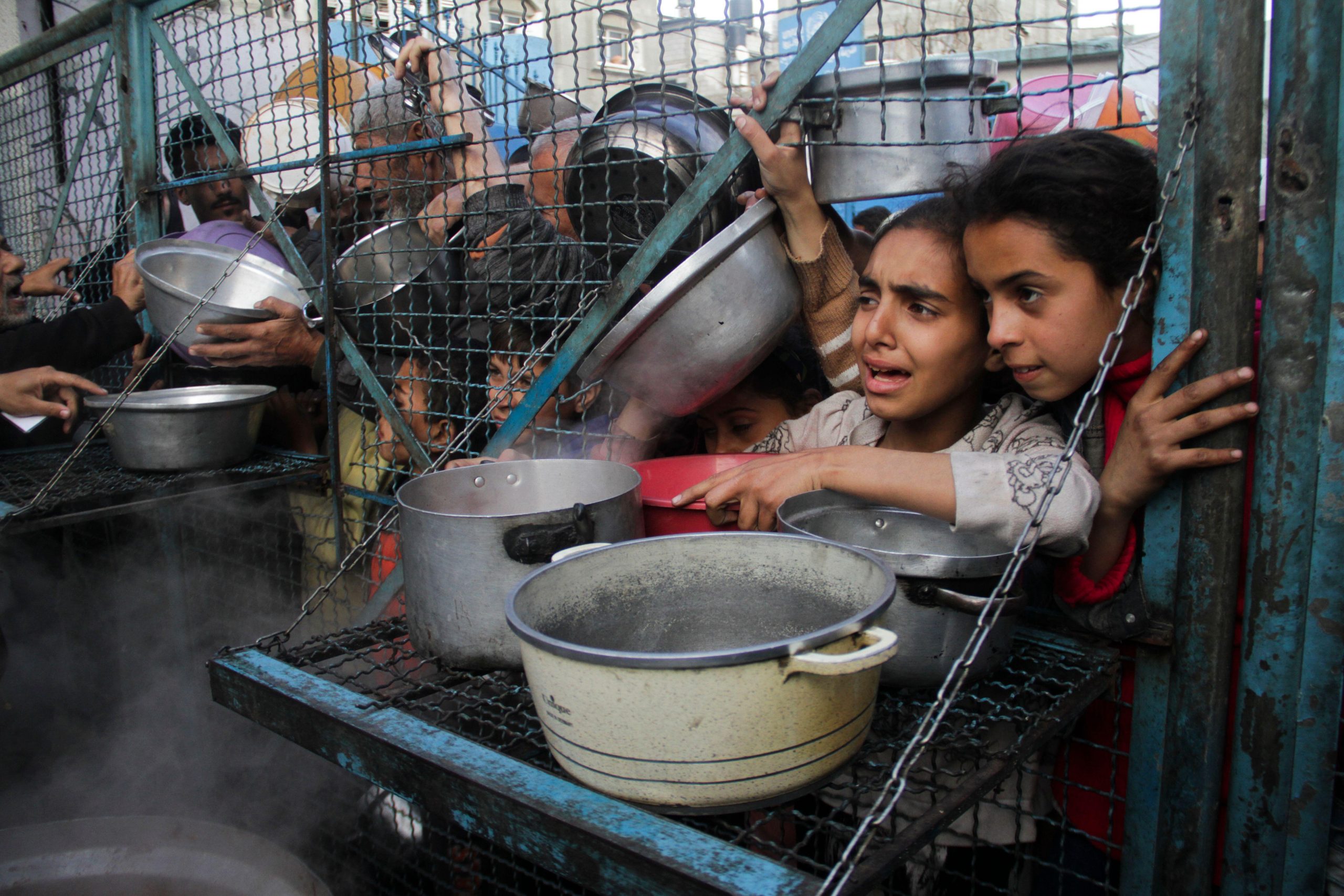Pope Francis again prayed for peace in the Holy after the Angelus last Sunday. He has made more than 60 appeals for peace in the Middle East and for the population of Gaza over the past year, according to the Vatican.
A senior papal diplomat suggested last week that the Holy See was considering alternatives to the two-state solution it has historically advocated for the conflict in the region.
Cardinal Fernando Filoni, the Grand Master of the Equestrian Order of the Holy Sepulchre, said that there were “two realities that live in the same territory” but that a solution must recognise Israelis and Palestinians “without having citizens of first class, second class, third class”.
“I don’t know if two states are better than one, integrated,” he said, adding: “You cannot negate Palestinians the right to exist, and you cannot deny Israelis the right to exist, both of them, in peace.”
Cardinal Filoni, a former sostituto at the Secretariat of State and prefect of the Congregation for Evangelisation of Peoples, said the essential principle for negotiation was, “You cannot have peace without justice.”
In an open letter to Christian leaders ahead of Holy Week, Pax Christi International called on them to demand an immediate ceasefire in Gaza, the release of all hostages and those held in Israeli detention, and the restoration of critical funding to the United Nations Relief and Works Agency (UNRWA).
“In sermons and parish messages, in pastoral letters and statements you have the unique power to awaken the hearts and minds of the faithful – we beg you to use it,” the letter said.
“When will our sisters and brothers in Gaza know that the Church has not abandoned them?”
Sources in Gaza’s Holy Family Parish report worsening shortages and psychological strain for the 128 families sheltering there, with 120 children among the 512 Catholic and Orthodox Christians (and over 100 others) inside the compound. The Tablet understands the Sr Nabila of the Rosary Sisters, who was due to leave the parish suffering exhaustion, has been unable to depart.
In Israel, the organisation Rabbis for Human Rights has called on the government to allow aid into Gaza. This week the UN Secretary General António Guterres reported that new data showed that famine could happen “anytime” in Gaza.
On Monday an Israel Defence Force attack on the Al-Shifa Hospital in Gaza City set fire to its surgery department.
Peace campaigners planned to hold a pray-in for a permanent ceasefire for Gaza outside the White House on 21 March, urging Congress to support demilitarisation rather than supplying additional military aid or arms to Israel, and to resume US government funding to UNRWA.
Last weekend saw marches demanding “Ceasefire Now” in Gibraltar, Bordeaux, Sydney, San Francisco and elsewhere.
The US-based Catholic Relief Services mourned the death of its longtime contract photographer, Mohamed Reefi, who was killed in Gaza City while waiting with other civilians for food aid to arrive.
Last weekend marked the twenty-first anniversary of the killing of an American woman trying to stop the demolition of family homes in Gaza.
Rachel Corrie was a 23-year-old college student who had gone to Gaza to join nonviolent protests against the destruction of houses and infrastructure by Israel. She was crushed by an armoured Israeli bulldozer about to demolish a house. No one has been held accountable for her death.
Corrie has been commemorated with a Rachel Corrie Street in Ramallah, in the West Bank, while soccer tournaments and a children’s centre in Rafah have been named after her. In 2010 the vessel MV Rachel Corrie was used to disrupt Israel’s sea blockade of Gaza.






